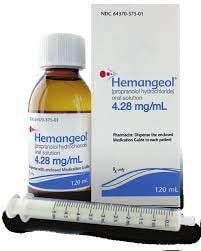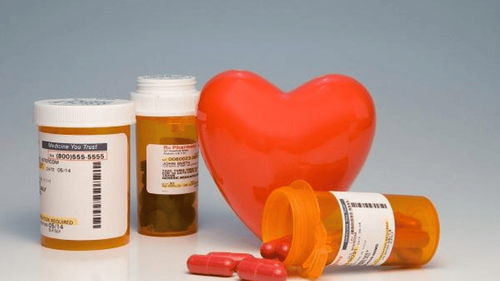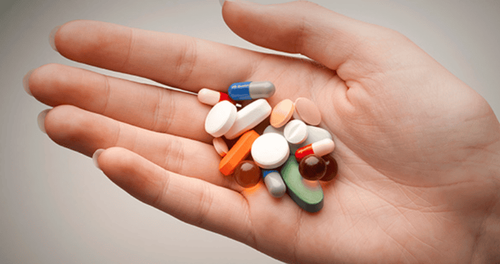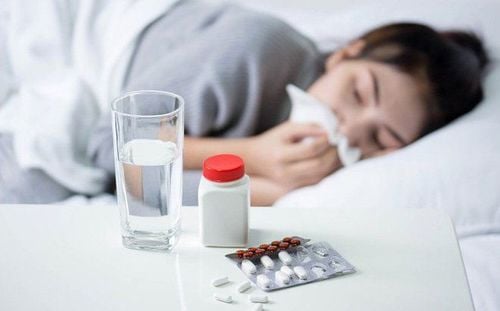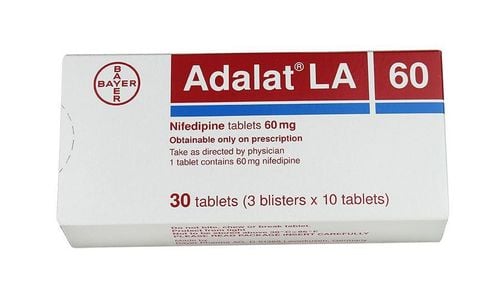This is an automatically translated article.
Chronic kidney failure is a fairly common disease today. There are many causes of kidney failure, in which the wrong use of drugs is one of the causes that is often ignored by people. Drugs that are harmful to the kidneys can be short-term drugs such as antibiotics... or even chronic drugs such as blood pressure drugs...
1. Some drugs can harm the kidneys
Kidney is one of the important human organs. The function of the two kidneys is to eliminate the toxins that the body produces and maintain a basic amount of fluid in the body. Besides, the kidneys also have other tasks such as excreting some hormones involved in regulating blood pressure in the body, secreting some substances that stimulate the bone marrow to produce red blood cells (erythropoietin) and participating in the synthesis of vitamin D. strong musculoskeletal system.
When the functions of the kidneys do not work effectively, it means kidney failure. There are many other causes of kidney failure and one of them is the use of medications.
SEE ALSO: Is taking collagen harmful to the kidneys and stomach?
1.1. Antibiotic
Antibiotics are the first and most common drugs that can cause kidney failure when used incorrectly. Different classes or classes of antibiotics damage the kidneys in different ways.
Some antibiotics, when active, can create strong crystals that are difficult to break and stick to the urinary tract of the patient; Antibiotics cause damage to cells in the process of the kidneys filtering to excrete them; Some patients are allergic to antibiotics and affect kidney function. These effects will increase the risk of occurring in case the patient uses the wrong antibiotic, takes it for a long time or the dose is higher than prescribed by the doctor.

Thuốc kháng sinh gây hại cho chức năng thận
1.2. Diuretic
This is a group of drugs that help the kidneys increase the filtration process to excrete more urine, the drug is indicated as a blood pressure medicine, heart failure medicine or to treat swelling. Diuretics help to eliminate excess fluid in the body, but the undesirable effect of this group of drugs can make the patient dehydrated and accidentally damage the kidneys.
1.3. Non-steroidal anti-inflammatory drugs (NSAIDs)
The most important thing for patients who use over-the-counter NSAID pain relievers (such as aspirin, ibuprofen, or naproxen) or have been prescribed by a doctor is: not to use them too often (overuse) , take it for a longer time or use a higher dose than prescribed by your doctor. Overuse of NSAID pain relievers is responsible for up to 5% of chronic kidney failure cases annually.
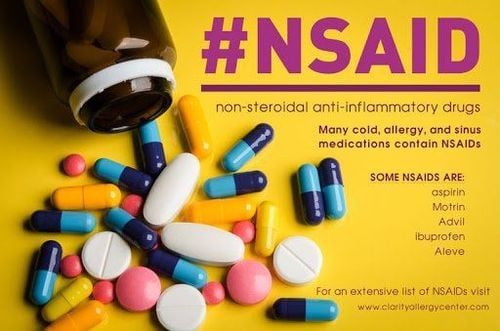
Chức năng thận có thể bị suy giảm nếu lạm dụng thuốc NSAID
1.4. Proton pump inhibitors (PPIs)
Proton pump inhibitors are indicated in the treatment of stomach problems such as heartburn, peptic ulcers, and gastroesophageal reflux disease. The effect of this class of drugs is to reduce the amount of acid in the stomach of patients, but recent studies have shown that long-term use can increase the risk of serious kidney problems, even can even lead to kidney failure.Another group of drugs that help treat similar conditions are H2 antihistamines. This class of drugs has the advantage of being less likely to cause kidney problems than proton pump inhibitors. Therefore, patients with long-term PPI indications should discuss with their doctor about switching to a different drug that can both effectively treat and limit kidney damage.
1.5. Laxative
Over-the-counter laxative products or prescribed by a doctor can create crystals that are deposited in the patient's kidneys, which can damage or cause kidney failure.
1.6. Some other drugs
Patients with previous chronic kidney disease need to be careful when using some of the following drugs because they can worsen kidney function or cause permanent kidney failure, including:
Blood cholesterol medications; Medications to control diabetes; Stomach antacids; Antifungal and antiviral drugs. SEE ALSO: 10 tips for correct blood pressure medication
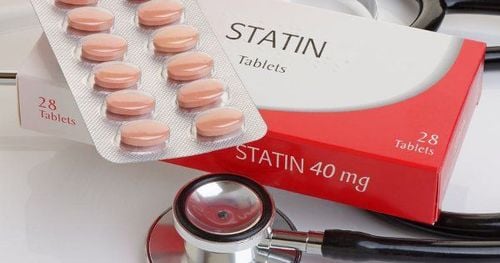
Thuốc điều trị cholesterol máu tăng nguy cơ gây hại cho thận
2. Is taking blood pressure medication harmful to the kidneys?
Blood pressure is a disease with a very high prevalence today, so the use of blood pressure drugs has also become more popular. So is taking blood pressure medicine harmful? Any drug, in addition to treating the main disease, can still cause various unwanted effects (including kidney failure), especially when used incorrectly as prescribed by a doctor.
Some commonly used blood pressure drugs and side effects:
Diuretics (such as thiazid, hydrochlorothiazide, indapamide, furosemide, spironolactone...): As mentioned above, this class of blood pressure drugs can cause dehydration and affect the patient's kidney function. In addition, diuretics also cause some other side effects such as orthostatic hypotension, electrolyte disturbances (such as hypocalcemia, potassium, and magnesium in the blood), impotence in men and especially in men. especially blood sugar spikes. Therefore, care should be taken when using it for patients with diabetes; Beta-blockers (including atenolol, propranolol, metoprolol, bisoprolol, carvedilol...): This class of blood pressure drugs can cause peripheral vasoconstriction, heart rate suppression causing excessive bradycardia, airway constriction and sleep disorders. Therefore, this group of drugs is contraindicated in patients with a history of asthma or bradycardia; ACE inhibitors (such as captopril, enalapril, lisinopril, perindopril...): taking blood pressure medication will cause kidney damage with ACE inhibitors, the answer is yes. ACE inhibitors may cause impaired renal function, angioedema, headache, weight loss, dizziness, elevated liver enzymes, taste disturbances, muscle pain, arthralgia, impotence in men and lower blood pressure. orthostatic blood pressure. In which, the most special is causing a dry cough that lasts and goes away on its own when the drug is stopped; Calcium channel blockers (such as nifedipine, amlodipine, felodipine...): These blood pressure drugs can cause side effects such as headache, fatigue, nervousness, dizziness... Vasodilators (such as hydralazine, minoxidil...): Common side effects include tachycardia, palpitations, palpitations, facial flushing; Drugs acting on the central nervous system may cause dry mouth, drowsiness, fluid retention, slow heart rate, headache, dizziness, nausea, and vomiting.
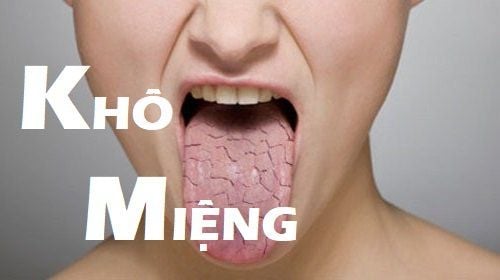
Uống thuốc huyết áp có thể gây khô miệng
Besides the therapeutic effect, some drugs can harm the kidneys, especially when the patient uses the wrong dose. Therefore, to ensure effectiveness, as well as to avoid harm to the kidneys, patients need to clearly declare their medical history and follow the doctor's instructions.
Please dial HOTLINE for more information or register for an appointment HERE. Download MyVinmec app to make appointments faster and to manage your bookings easily.
Reference source: webmd.com




